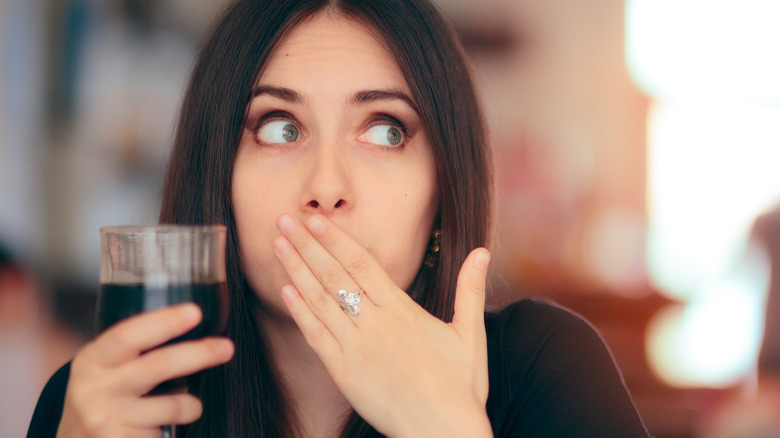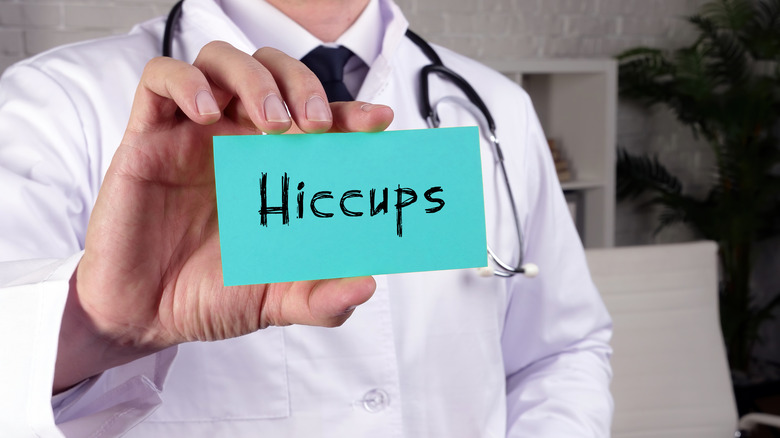What It Really Means When You Can't Get Rid Of The Hiccups
Everyone's gotten a case of the hiccups at one time or another. These somewhat embarrassing noises are caused by involuntary contractions of the diaphragm, a dome-shaped muscle that sits between the chest and abdomen that plays a major role in respiration (via Mayo Clinic). After each contraction, the vocal cords suddenly close. This is what causes the "hic" sound.
Most bouts of the hiccups are brought on by eating a large meal, consuming carbonated or alcoholic drinks, swallowing air while chewing gum or sucking on candy, or emotional extremes like excitement or stress. Hiccups typically last no more than a couple of minutes. However, if hiccups last more than 48 hours, this may be a sign of an underlying issue.
According to GARD, the Genetic and Rare Diseases Information Center, a branch of the National Institutes of Health, chronic hiccups are those that last more than two days. In rare cases, they may last up to a month or more. Chronic hiccups can lead to a number of complications, including weight loss, malnutrition, insomnia, emotional distress, depression, and anxiety. Call your doctor if your hiccups last more than 48 hours.
Causes and treatments for chronic hiccups
There is no exact underlying cause for chronic hiccups, according to GARD. In fact, more than 100 different causes have been reported. Some potential causes include nerve damage or irritation; central nervous system disorders like meningitis, encephalitis, multiple sclerosis, stroke, and traumatic brain injury; and metabolic disorders like diabetes (via Mayo Clinic). Certain drugs, including steroids, tranquilizers, barbiturates, and chronic alcohol use, may also trigger long-term hiccups.
Most cases of chronic hiccups will eventually go away on their own with no need for treatment. Home remedies to treat hiccups include breathing into a paper bag, gargling with ice water, sipping cold water, and holding your breath. It's also best to avoid large meals, gas-producing foods, and carbonated beverages if you have chronic hiccups. If an underlying medical condition is the cause of long-term hiccups, treating that medical condition should also relieve the hiccups. Some medications are also available to treat long-term hiccups. If less-invasive treatments aren't working, surgery can also be an option. Your doctor will help you figure out the treatment plan that works best for you.


